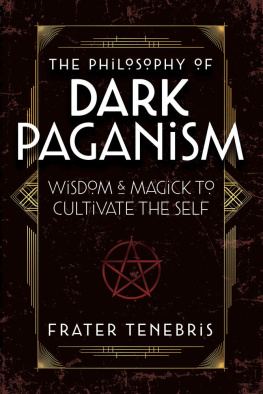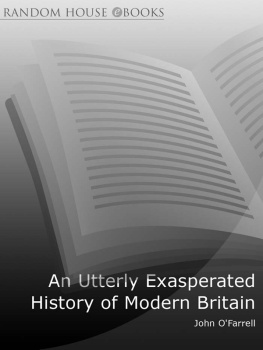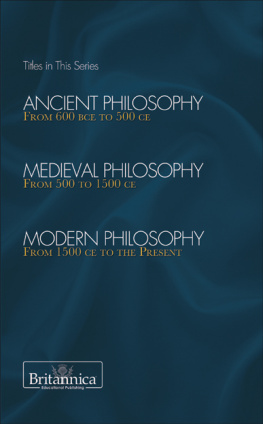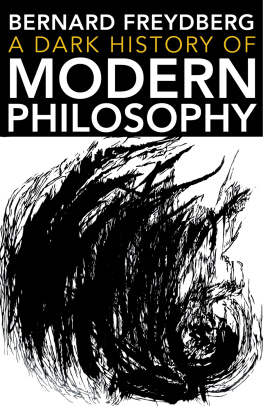Bozovic Miran - An utterly dark spot: gaze and body in early modern philosophy
Here you can read online Bozovic Miran - An utterly dark spot: gaze and body in early modern philosophy full text of the book (entire story) in english for free. Download pdf and epub, get meaning, cover and reviews about this ebook. City: Ann Arbor, year: 2000, publisher: University of Michigan Press, genre: Science. Description of the work, (preface) as well as reviews are available. Best literature library LitArk.com created for fans of good reading and offers a wide selection of genres:
Romance novel
Science fiction
Adventure
Detective
Science
History
Home and family
Prose
Art
Politics
Computer
Non-fiction
Religion
Business
Children
Humor
Choose a favorite category and find really read worthwhile books. Enjoy immersion in the world of imagination, feel the emotions of the characters or learn something new for yourself, make an fascinating discovery.

- Book:An utterly dark spot: gaze and body in early modern philosophy
- Author:
- Publisher:University of Michigan Press
- Genre:
- Year:2000
- City:Ann Arbor
- Rating:5 / 5
- Favourites:Add to favourites
- Your mark:
- 100
- 1
- 2
- 3
- 4
- 5
An utterly dark spot: gaze and body in early modern philosophy: summary, description and annotation
We offer to read an annotation, description, summary or preface (depends on what the author of the book "An utterly dark spot: gaze and body in early modern philosophy" wrote himself). If you haven't found the necessary information about the book — write in the comments, we will try to find it.
Bozovic Miran: author's other books
Who wrote An utterly dark spot: gaze and body in early modern philosophy? Find out the surname, the name of the author of the book and a list of all author's works by series.
An utterly dark spot: gaze and body in early modern philosophy — read online for free the complete book (whole text) full work
Below is the text of the book, divided by pages. System saving the place of the last page read, allows you to conveniently read the book "An utterly dark spot: gaze and body in early modern philosophy" online for free, without having to search again every time where you left off. Put a bookmark, and you can go to the page where you finished reading at any time.
Font size:
Interval:
Bookmark:
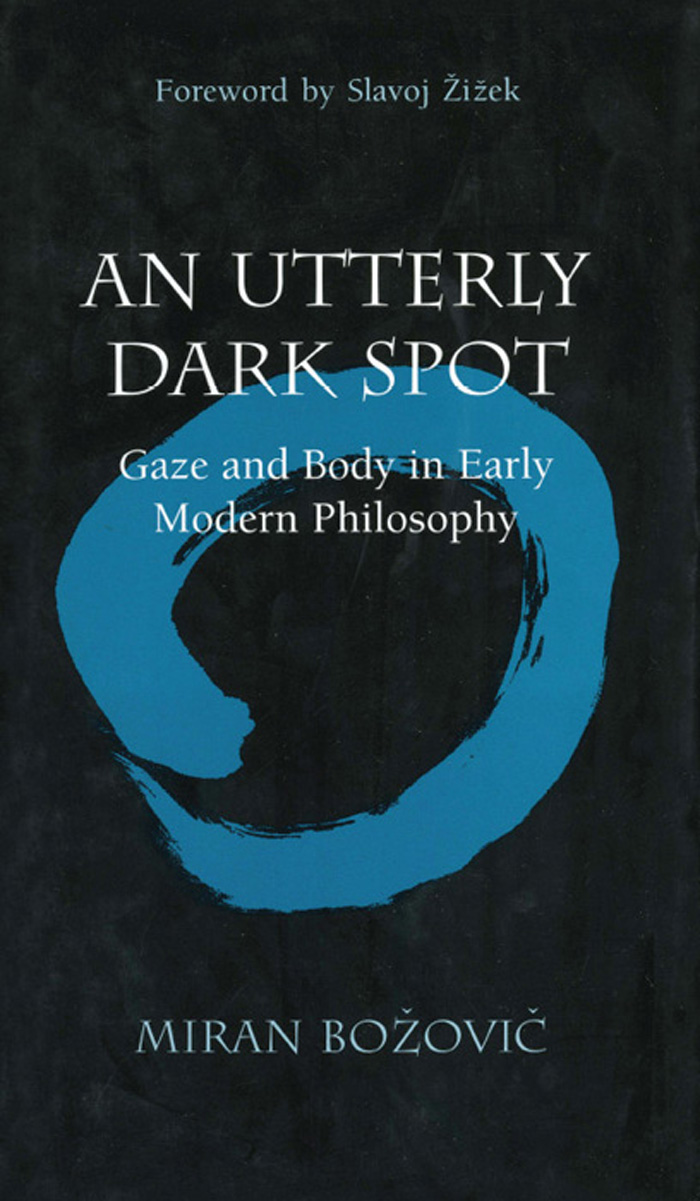

The Subject as Action: Transformation and Totality in Narrative Aesthetics
by Alan Singer
Power and Knowledge: Astrology, Physiognomics, and
Medicine under the Roman Empire
by Tamsyn S. Barton
Under the Sign: John Bargrave as Collector, Traveler, and Witness
by Stephen Bann
Simulacra and Simulation
by Jean Baudrillard, translated by Sheila Faria Glaser
The Deluge, the Plague: Paolo Uccello
by Jean Louis Schefer, translated by Tom Conley
Philodemus in Italy: The Books from Herculaneum
by Marcello Gigante, translated by Dirk Obbink
The Tremulous Private Body: Essays on Subjection by Francis Barker
Picturing Silence: Emblem, Language, Counter-Reformation Materiality
by Karen Pinkus
The Gay Critic by Hubert Fichte, translated by Kevin Gavin
The Abyss of Freedom / Ages of the World
by Slavoj iek / F. W. J. von Schelling, translated by Judith Norman
The Body and Physical Difference: Discourses of Disability
edited by David T. Mitchell and Sharon L. Snyder
Constructions of the Classical Body edited by James I. Porter
An Utterly Dark Spot: Gaze and Body in Early Modern Philosophy
by Miran Boovi
The Pedagogical Contract: The Economies of Teaching and
Learning in the Ancient World
by Yun Lee Too

Gaze and Body
in Early
Modern Philosophy
BY
MIRAN BOOVI
Ann Arbor
The University
of Michigan
Press
Copyright by the University of Michigan 2000
All rights reserved
Published in the United States of America by
The University of Michigan Press
Manufactured in the United States of America Printed on acid-free paper
Printed on acid-free paper
2003 2002 2001 2000
4 3 2 1
No part of this publication may be reproduced,
stored in a retrieval system, or transmitted in
any form or by any means, electronic, mechanical,
or otherwise, without the written permission
of the publisher.
A CIP catalog record for this book is available
from the British Library.
Library of Congress Cataloging-in-Publication Data
Boovi, Miran.
An utterly dark spot : gaze and body in early modern
philosophy / Miran Boovi.
p. cm. (The body, in theory)
Includes bibliographical references.
ISBN 0-472-11140-X (alk. paper)
1. Body, Human (Philosophy) I. Title. II. Series.
B105.B64 B69 2000
128.6dc21 99-050665
The author wishes to
thank Carol Bartosiewicz for her help
in preparing the manuscript.
ISBN13 978-0-472-11140-4 (cloth)
ISBN13 978-0-472-02319-6 (electronic)
In our era, the Cartesian cogito definitely enjoys a bad press; in his public statements, Al Gore himself repeatedly blames it for all the woes of today's society from ecological crises to psychic distresses. Caught in this anti-Cartesian barrage, we tend to forget the extent to which the reference to the Cartesian cogito as the abstract thinking subject, capable of acquiring a distance towards all its particular features, serves as the foundation of our post-traditional society. Democracy itself, what Claude Lefort called the democratic invention, could have emerged only within the Cartesian space. This democratic legacy of the abstract Cartesian cogito can be best discerned apropos of the pseudofeminist argument for the greater role of women in public and political life: their role should be more prominent, since, due to natural or historical reason, their predominant stance is less individualistic, competitive, domination-oriented, and more cooperative and compassionate. The Cartesian democratic lesson is here that the moment one accepts the terms of such a discussion, one already concedes defeat and accepts the predemocratic meritocratic principle: there should be more women in public life not because of any of their particular positive psychosocial properties, but on account of the simple democratic-egalitarian principle (what Balibar called galibert) that women simply have the right to a more exposed role in public decision making because they form half of the population.
Miran Boovi's book focuses on the fate of the body in this reduction of the human being to the abstract subject. Critics of Cartesianism emphasize the body as the weak point of the whole Cartesian edifice. With Descartes, the Aristotelian organic unity in which form is immanent to matter, and soul to body, is broken; instead, we get a crude dualism, with the body reduced to the lifeless, cold mechanism of res extersa. The first thing to add to this commonplace is that the natural naked body itself appeared only within the space of the Cartesian modernity; nudism and other forms of the celebration of nakednessnot as part of secret initiatic transgressive rituals (as in premodern pagan societies), but as finding pleasure in asserting the innocent beauty of one's natural bodyare distinctly modern phenomena. What one has to do here is to repeat the gesture accomplished by Hegel apropos of the sudden rise of nature as the topos in seventeenth century art. Precisely because the Spirit has returned to itself and is able to grasp itself directly, bypassing nature as the medium of its symbolic expression, nature becomes perceptible in its innocence, as it is in itself, as a beautiful object of contemplation, not as a symbol of spiritual struggles. Along the same lines, with the advent of cogito as the pure thinking substance, the human body itself is redeemed, free to be celebrated as an object of pleasure and beauty. On the other hand, this appearance of the unmutilated naked bodyof the body that no longer has to be marked by scars, tattoos, etc., in order to assert the subject's belonging to some symbolic communityis strictly correlative to the imposition of the disciplinary procedures described in detail by Michel Foucault. With the advent of modernity, when the body is no longer marked or inscribed upon, it becomes the object of strict disciplinary regulations designed to make it fit.
Even more crucial than this appearance of the naked body is the fact that, in the Cartesian tradition itself, the reduction of the body to the transparent res extensa never succeeds without a certain remainderand it is the dark spot of this remainder that forms the proper topic of Boovi's book. This dimension of the body irreducible to res extensa appears in multiple guises, from the ethereal body that directly materializes spiritual energy (phlogiston, ether) to the sublime body of the political leader exempted from the corruption and natural decay of common bodies. In the political history of the twentieth century, the privileged case of the emergence of this sublime body occurs in the passage from Leninism to Stalinism.
Lenin as a person stood for a certain radical ethical attitude. After his first major stroke on 25 May 1922, which left his right This abstract character of the Lady points towards the abstraction that pertains to a cold, distanced, inhuman partner; the Lady is in no way a warm, compassionate, understanding fellow-creature.
Font size:
Interval:
Bookmark:
Similar books «An utterly dark spot: gaze and body in early modern philosophy»
Look at similar books to An utterly dark spot: gaze and body in early modern philosophy. We have selected literature similar in name and meaning in the hope of providing readers with more options to find new, interesting, not yet read works.
Discussion, reviews of the book An utterly dark spot: gaze and body in early modern philosophy and just readers' own opinions. Leave your comments, write what you think about the work, its meaning or the main characters. Specify what exactly you liked and what you didn't like, and why you think so.

